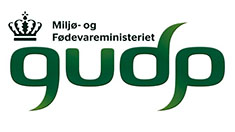Novel cleaning improves pork production’s competitiveness and sustainability
PROJECT IS COMPLETED
Period: 2014 - 2017
The daily cleaning during slaughter and processing of pork costs millions of kroner and uses great amounts of water, energy and cleaning agents. Higher production sustainability and lower cost can be obtained through a novel cleaning procedure.
The daily cleaning during slaughter and processing of pork costs millions of kroner and thus has a direct impact on the competitiveness of enterprises while it creates a significant environmental impact.
This project will rethink and streamline the traditional daily cleaning in slaughterhouses and meat processing companies, to secure financial savings for the benefit of competitiveness and sustainability through simultaneous reduction in consumption of water, energy and chemicals.
This project’s purpose is to streamline traditional slaughterhouse cleaning with scientifically documented experiments and to develop an intuitive management tool.
In-line sensors will be used to measure the relevant production parameters. Based on the collected data, chemometric models and software will be developed to predict the current cleaning status. The user interface should be easily accessible, so the result that appears will be easily understood, such as ‘green = OK’ or ‘red = correction needed’.
Knowledge and documentation will be presented in the form of user-friendly guidelines describing how the cleaning at slaughterhouses and meat processing companies can be rethought to become more efficient and less harmful to the environment without compromising food safety, quality or aesthetics.
Funded by:

Project: Novel cleaning improves pork production’s competitiveness and sustainability
Original title: Større effektivitet og mindre miljøbelastning gennem nytænkning af rengøring
Period: January 2014 - December 2017
Grant donor: Green Development and Demonstration Programme (GUDP)
FOOD grant: DKK 900,000
Total grant: DKK 6,450,750
Contact
 Nanna Viereck
Nanna Viereck
Associate Professor
Food Analytics and Biotechnology
